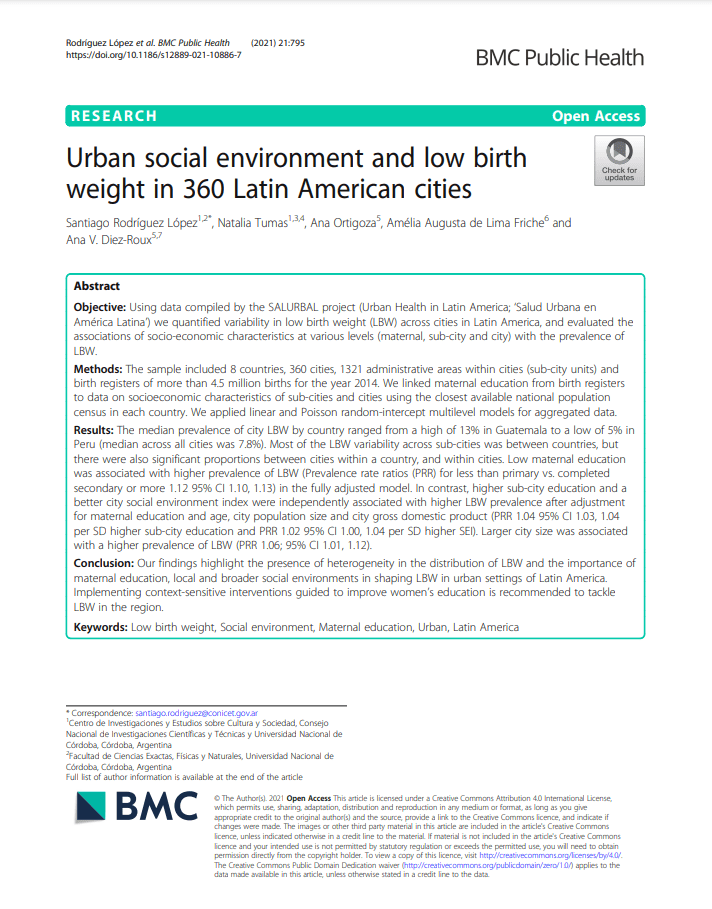Urban social environment and low birth weight in 360 Latin American cities
Author(s): Santiago Rodríguez López, Natalia Tumas, Ana Ortigoza, Amélia Augusta de Lima Friche and Ana V. Diez-Roux
Objective: Using data compiled by the SALURBAL project (Urban Health in Latin America; ‘Salud Urbana en América Latina’) we quantified variability in low birth weight (LBW) across cities in Latin America, and evaluated the associations of socio-economic characteristics at various levels (maternal, sub-city and city) with the prevalence of LBW.
Methods: The sample included 8 countries, 360 cities, 1321 administrative areas within cities (sub-city units) and birth registers of more than 4.5 million births for the year 2014. We linked maternal education from birth registers to data on socioeconomic characteristics of sub-cities and cities using the closest available national population census in each country. We applied linear and Poisson random-intercept multilevel models for aggregated data.
Results: The median prevalence of city LBW by country ranged from a high of 13% in Guatemala to a low of 5% in Peru (median across all cities was 7.8%). Most of the LBW variability across sub-cities was between countries, but there were also significant proportions between cities within a country, and within cities. Low maternal education was associated with higher prevalence of LBW (Prevalence rate ratios (PRR) for less than primary vs. completed secondary or more 1.12 95% CI 1.10, 1.13) in the fully adjusted model. In contrast, higher sub-city education and a better city social environment index were independently associated with higher LBW prevalence after adjustment for maternal education and age, city population size and city gross domestic product (PRR 1.04 95% CI 1.03, 1.04 per SD higher sub-city education and PRR 1.02 95% CI 1.00, 1.04 per SD higher SEI). Larger city size was associated with a higher prevalence of LBW (PRR 1.06; 95% CI 1.01, 1.12).
Conclusion: Our findings highlight the presence of heterogeneity in the distribution of LBW and the importance of maternal education, local and broader social environments in shaping LBW in urban settings of Latin America. Implementing context-sensitive interventions guided to improve women’s education is recommended to tackle LBW in the region.

